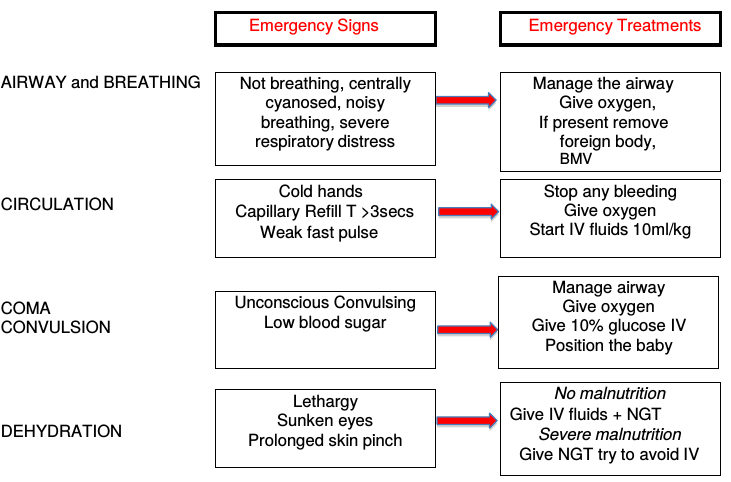Temperature (high temperature as judged by your hand)
Trauma

Those with life threatening illness must be seen immediately as EMERGENCIES, Those who are less sick must be seen next and are PRIORITIES
Those who are non-urgent cases can wait their turn in the QUEUE.

The ABCCCD concept is used to identify emergencies. This is a logical and quick way of identifying how sick a child is; it does not take the place of a thorough examination to make a diagnosis but is a screening tool to identify problems that require immediate attention.
Emergencies are sent straight to the best place for resuscitationFor triage we need to know;

Also see
When emergencies have been excluded, signs and symptoms for priority are looked for. Priority signs can be remembered with the letters 3TPR, MOB. Remember that all infants less than 2 months of age are priorities. This is because infants can deteriorate rapidly; they are difficult to assess without a thorough examination; and to prevent them remaining in a queue exposed to infections from other children.
Priorities are sent to the front of the queue to be seen quickly.PRIORITY SIGNS are:
| Tiny (less than 2 month of age) Temperature (high temperature as judged by your hand) Trauma |
 |
| Pain Pallor Poisoning |
 |
| Respiratory distress (not life threatening) Referral (urgent) Restless |
 |
| Malnutrition Oedema Burns |
 |